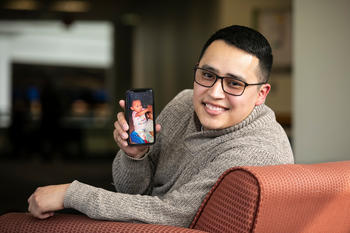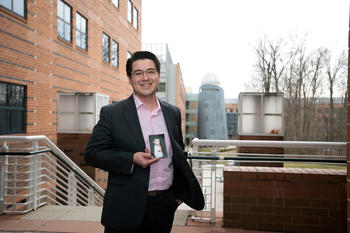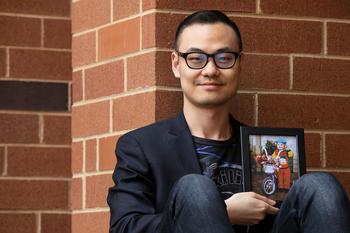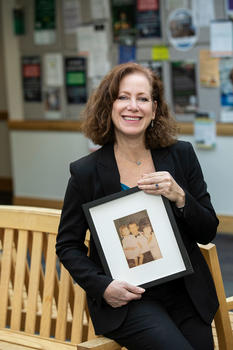In This Story
First-generation students and faculty bring a unique dedication and perspective to the George Mason University community. At Mason, 33 percent of students are first generation, meaning they are the first in their family to attend college or to complete a four-year degree. Here, a first-generation student, alumnus, and two faculty members share their stories.

Franklin Funes
Management Major
Expected Graduation: Fall 2019
My family is incredibly proud that I am the first to get my degree, especially from such a respected school. My sisters have encouraged me all along the way and know that if I can do it, so can they.
I want to use my personal story as a way to motivate other first-generation students to finish their degree. In the tough moments, I want to be that sounding board and motivator they need to get to the finish line. In the end, I just want my story to help other students meet their goals.

Shin Nan Goto
BS Accounting ’07
Senior Manager, Professional Service Practice,Baker Tilly
One thing that I treasure in my role at Baker Tilly is my opportunity to come on campus to meet with and talk to students about the accounting industry. Meeting first-generation students who are pulling themselves up and trying to find their future in the accounting industry constantly inspires me. I always maintain a mindset, when I’m coming to Mason to recruit, that I find out the real story of every individual. A lot of times, it’s a story that mirrors my own.
I think Mason is the perfect school for individuals who are first-generation college students. It’s uniquely positioned in the Washington, D.C., area to provide opportunities and access to employers, internships, and meaningful employment while you’re in school that other universities don’t. I credit this as a major reason that I could successfully finish my degree as a first-generation student at Mason.

Jiasun Li
Assistant Professor of Finance
PhD, Finance, University of California, Los Angeles
BS, Mathematics, Fudan University
My situation might be a little different from the United States because my parents grew up in a time in China when most colleges were shut down. It’s not that they didn’t want to go to college. They didn’t have the opportunity, so they always supported my education.
I think it’s a precious opportunity to go to college, and I think it would be useful for first-generation students to spend some time and talk to people who have that experience so that they know what to expect in college and what to expect when they graduate so they can prioritize their work.

Suzanne de Janasz
Visiting Professor of Management and Conflict Analysis and Resolution
PhD, Organizational Behavior, University of Southern California
MBA, University of Southern California
BM, Music and Business, University of Miami
My parents were supportive of, but a bit confused by, my motivation for graduate degrees. I sometimes wished they understood the pressures I faced, but I found ways to forge my own path and seek support from others who had “been there and done that.” These mentors gave great advice, provided a reality check, and facilitated connections to others.Building relationships with mentors continues for me and also my students. For almost 20 years, I’ve required students in most of my classes to initiate and carry out a relationship with online mentors. Through this process, students expand their understanding of course concepts and also come to recognize the importance of mentors in their lives. Anyone—at any stage of life—can benefit from having (or being!) a mentor.
